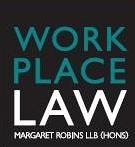When should a trial be paid?
Essentially, a trial should be on pay where the employer gains an economic benefit from the employee’s work.
So, a cafe owner could legitimately ask an aspiring barista to make a few cups of coffee without pay, just to see if the barista can do it. But the cafe owner would have to pay the barista if the trial involved the barista making coffees for customers. Or an employer could ask a word processor operator to perform a typing test, without having to pay them. It is also acceptable for an employee to be invited to observe the workplace, without pay, to see if they want to work there.
Unpaid trials are risky for an employer. A better strategy might be to issue your standard employment agreement which includes a 90 day paid trial. You can end the trial at any time on (usually) short notice contained within the 90 day trial clause.
If you need advice on unpaid trials or 90 day trials, call Workplace Law on (027) 270 1057.

